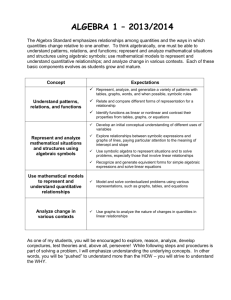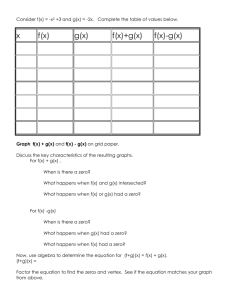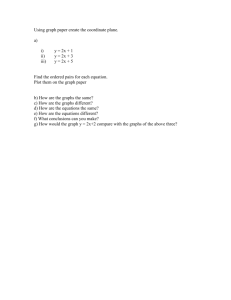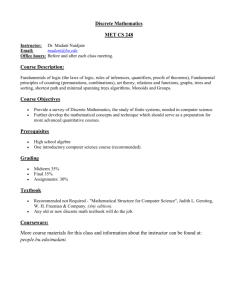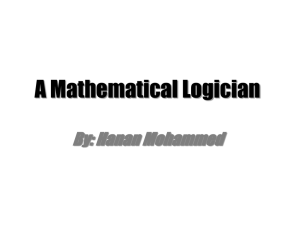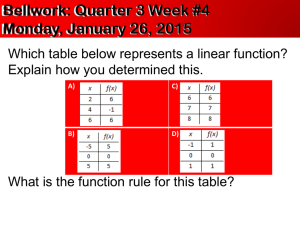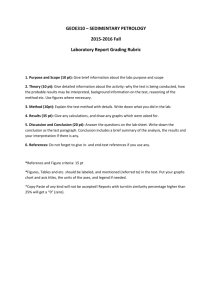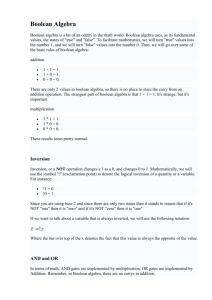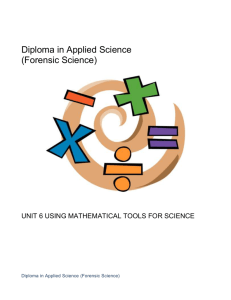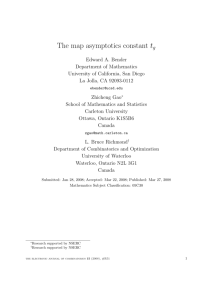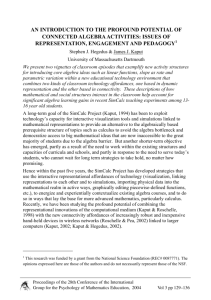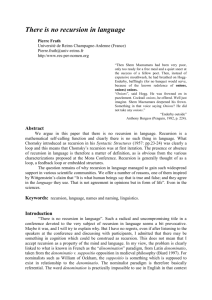Punkty ECTS - bw.pwsz.legnica.edu.pl
advertisement
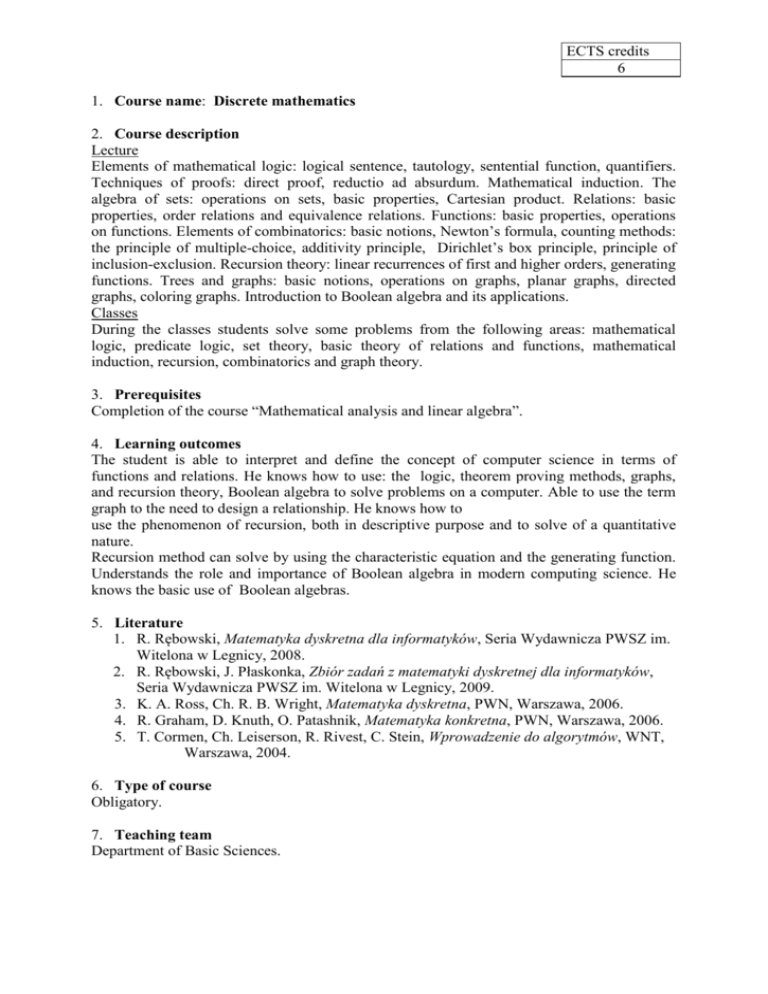
ECTS credits 6 1. Course name: Discrete mathematics 2. Course description Lecture Elements of mathematical logic: logical sentence, tautology, sentential function, quantifiers. Techniques of proofs: direct proof, reductio ad absurdum. Mathematical induction. The algebra of sets: operations on sets, basic properties, Cartesian product. Relations: basic properties, order relations and equivalence relations. Functions: basic properties, operations on functions. Elements of combinatorics: basic notions, Newton’s formula, counting methods: the principle of multiple-choice, additivity principle, Dirichlet’s box principle, principle of inclusion-exclusion. Recursion theory: linear recurrences of first and higher orders, generating functions. Trees and graphs: basic notions, operations on graphs, planar graphs, directed graphs, coloring graphs. Introduction to Boolean algebra and its applications. Classes During the classes students solve some problems from the following areas: mathematical logic, predicate logic, set theory, basic theory of relations and functions, mathematical induction, recursion, combinatorics and graph theory. 3. Prerequisites Completion of the course “Mathematical analysis and linear algebra”. 4. Learning outcomes The student is able to interpret and define the concept of computer science in terms of functions and relations. He knows how to use: the logic, theorem proving methods, graphs, and recursion theory, Boolean algebra to solve problems on a computer. Able to use the term graph to the need to design a relationship. He knows how to use the phenomenon of recursion, both in descriptive purpose and to solve of a quantitative nature. Recursion method can solve by using the characteristic equation and the generating function. Understands the role and importance of Boolean algebra in modern computing science. He knows the basic use of Boolean algebras. 5. Literature 1. R. Rębowski, Matematyka dyskretna dla informatyków, Seria Wydawnicza PWSZ im. Witelona w Legnicy, 2008. 2. R. Rębowski, J. Płaskonka, Zbiór zadań z matematyki dyskretnej dla informatyków, Seria Wydawnicza PWSZ im. Witelona w Legnicy, 2009. 3. K. A. Ross, Ch. R. B. Wright, Matematyka dyskretna, PWN, Warszawa, 2006. 4. R. Graham, D. Knuth, O. Patashnik, Matematyka konkretna, PWN, Warszawa, 2006. 5. T. Cormen, Ch. Leiserson, R. Rivest, C. Stein, Wprowadzenie do algorytmów, WNT, Warszawa, 2004. 6. Type of course Obligatory. 7. Teaching team Department of Basic Sciences.
